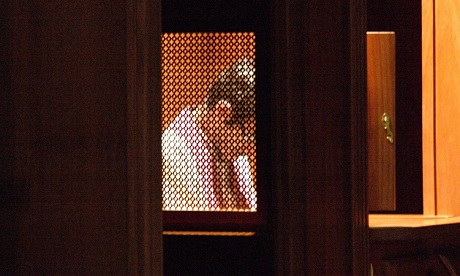Perth’s Archbishop Timothy Costelloe has spoken out about new confessional legislation passed by the Western Australian State Parliament.
The confessional legislation removes civil law protections to the confidentiality of the seal of confession.
The confessional experience is a personal encounter between that person and Christ, Costelloe wrote in a pastoral letter published last week.
He said the state parliament’s decision not only potentially criminalises a priest’s faithfulness to his role, there’s no guarantee any child will be better protected because of the new legislation.
“It is particularly concerning and troubling that the majority opinion of the legislative committee established by the government to look into this matter was not accepted by the parliament,” Costelloe wrote.
“In a 3-2 majority decision this committee recommended that disclosures made in the context of a religious confession should not be subject to the new mandatory reporting laws.”
Queensland and Victoria have also implemented similar legislation.
Costelloe said some people mistakenly think if a person discloses abuse during confession that the priest can and will do nothing.
“A priest will do everything he can to provide advice, support and accompaniment if the person making the disclosure is open to this.”
Priests are allowed to act if the person discloses information outside the context of confession, but anything they are told during confession is completely private.
This is because in Catholic teaching the priest acts in the person of Christ in this encounter.
“In a very real sense the disclosure is made to Christ who, in the person of the priest, listens, advises, encourages and assists that person in every way possible. He does not betray that person’s confidence.”
Silliness reaches it peak
If an abuser comes to confession, the priest will do everything in his power to convince them to hand themselves into the police.
However, it is not Catholic teaching that people need to show some form of ID before confessing the sins; the nature of confession is it is generally anonymous and the priest does not necessarily know the person confessing their sins.
Costelloe said the passage of the new law means it’s almost inconceivable that a perpetrator would put themselves at risk of discovery by making a confession.
“And of course, if a perpetrator did take the “risk” of going to confession, he or she would certainly go to a priest who could not identify them, and who conducted confession in a setting which guaranteed anonymity.”
Costelloe acknowledged many people will unfairly criticise him and the Church for its opposition to this legislative change.
“The Catholic Church right across the country … has taken many constructive steps to address this terrible reality …,” he said.
He noted the Perth archdiocese was the first in the world to launch a Safeguarding Office in 2015. It has over 250 trained Safeguarding Officers across more than 105 parishes.
Costelloe concluded his Pastoral Letter emphasising three points.
Firstly, his commitment to the safety and well-being of our children and young people is unwavering.
“Secondly, that we will continue to respond with openness, compassion and generosity to those who have been victims and are now survivors of the terrible crime and sin of sexual abuse by people associated with the Catholic Church.
“And thirdly that our priests will continue to put themselves at your service seeking as best they can to be living and effective signs and bearers of the presence of the Good Shepherd among you.”
Source
- The Record
- Image: FSSPX News
Additional reading
News category: World.




